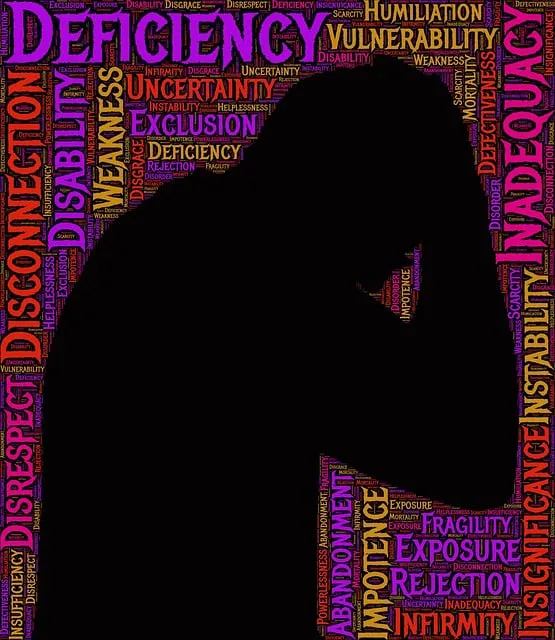Social skills are vital for daily life and mental well-being, but challenging for individuals with mental health conditions. Norcal healthcare providers address this through Cultural Competency Training, Empathy Building, and public awareness campaigns. Resources like Boulder Kaiser Permanente's phone numbers offer support, while journaling and community engagement reduce stigma. Effective social skills training, including role-playing and group therapy, helps manage conditions and fosters positive interactions, improving overall mental wellness.
Social skills training is a powerful tool in managing mental health conditions, offering individuals the chance to enhance their interactions and overall well-being. This comprehensive guide explores how improving social engagement can significantly benefit those navigating mental health challenges, especially in the context of Boulder and NorCal areas served by Kaiser Permanente. By understanding the impact of social isolation and learning effective training strategies, you’ll discover practical ways to foster meaningful connections and improve quality of life.
- Understanding Social Skills and Mental Health
- The Impact of Poor Social Interaction on Wellbeing
- Effective Training Strategies for Better Social Engagement
Understanding Social Skills and Mental Health

Social skills are a crucial aspect of our daily lives, enabling us to connect with others, communicate effectively, and build meaningful relationships. For individuals living with mental health conditions, navigating social interactions can be particularly challenging. Mental health issues often impact an individual’s ability to engage in typical social behaviors, leading to feelings of isolation and further exacerbating their condition. According to the Boulder Kaiser Permanente mental health phone number, many patients struggle with social skills as a result of their diagnoses, which can hinder their overall well-being and recovery.
The relationship between social skills and mental health is complex. On one hand, limited or impaired social interactions can contribute to the development or exacerbation of certain mental health conditions. On the other hand, enhancing social skills through training and support can empower individuals with mental health challenges to improve their quality of life. In Norcal, healthcare providers are recognizing the importance of addressing these skills, incorporating Cultural Competency Training and Empathy Building Strategies into their practice to better support patients’ holistic well-being. Public Awareness Campaigns Development initiatives also play a vital role in breaking down stigma and promoting understanding around mental health and social interactions.
The Impact of Poor Social Interaction on Wellbeing

Social interaction plays a pivotal role in our overall well-being, and for individuals managing mental health conditions, it can be even more significant. When social connections falter, it can lead to a cascade of negative effects on mental wellness. Research shows that poor social interaction is linked to increased anxiety, depression, and loneliness, exacerbating existing mental illness symptoms. This is particularly relevant for those seeking support through organizations like Kaiser Permanente in Norcal, where accessing mental health phone numbers and resources is a crucial step towards recovery.
The impact extends beyond emotions; it can also influence an individual’s ability to cope with their condition. Mental wellness journaling exercises can help individuals process these social interactions and identify patterns contributing to distress. By documenting experiences and emotions, one can gain valuable insights into personal triggers and develop strategies to navigate social challenges more effectively. Moreover, reducing the stigma associated with mental illness through community engagement and support groups is an essential aspect of fostering positive social interactions and enhancing overall mental wellness.
Effective Training Strategies for Better Social Engagement

Effective social skills training is a cornerstone in managing mental health conditions, and several strategies have proven beneficial for individuals seeking support from Boulder Kaiser Permanente mental health phone number NorCal resources. One powerful approach involves role-playing scenarios that simulate real-life interactions. This technique allows participants to practice essential communication skills, learn nonverbal cues, and develop appropriate responses in various social settings. By repeatedly engaging in these exercises, individuals can build confidence and reduce anxiety when facing social challenges.
Additionally, group therapy sessions facilitate a sense of community and shared experiences, which is crucial for those dealing with burnout prevention. The Community Outreach Program Implementation at NorCal encourages participants to form connections and learn from one another. Through sharing coping skills development strategies and discussing personal journeys, these groups foster a supportive environment where individuals can navigate their mental health journeys together. Such initiatives not only enhance social engagement but also provide valuable resources for improving overall well-being.
Social skills training plays a pivotal role in improving mental health outcomes, especially for individuals navigating conditions like those managed by Boulder Kaiser Permanente’s dedicated services. By addressing the impact of poor social interaction on wellbeing, as highlighted in this discussion, targeted training strategies can foster better engagement and connection. For those in norcal seeking support, understanding these skills and accessing appropriate resources through organizations like Kaiser Permanente can be a game-changer, leading to enhanced quality of life and more fulfilling social interactions.






